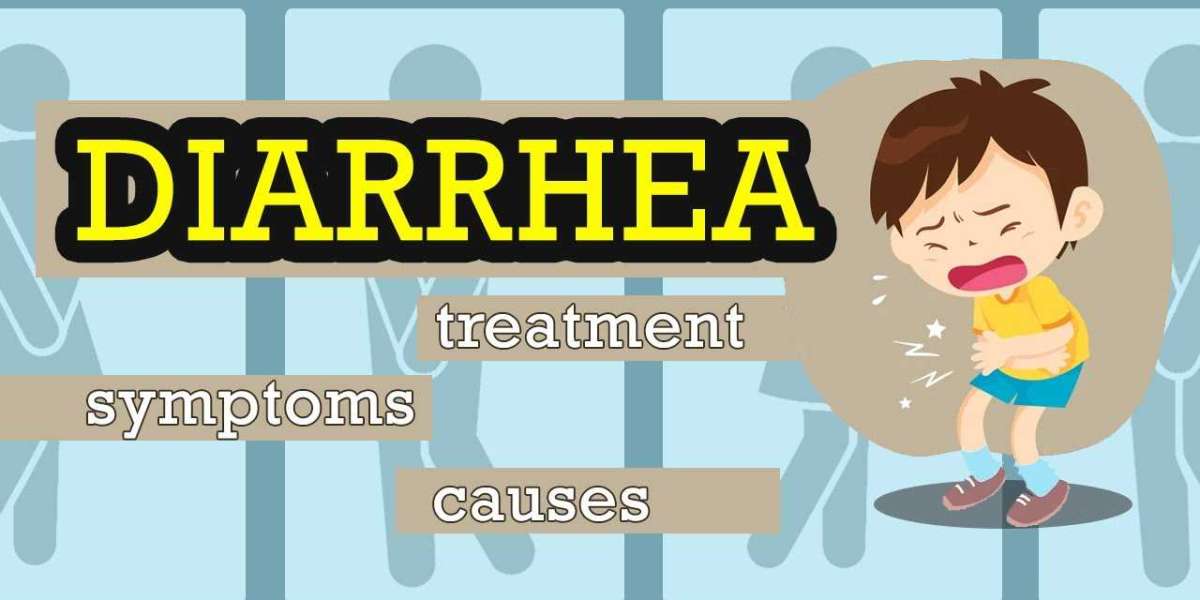Traveling can be a rewarding experience, but it can also bring unexpected challenges. One of the most inconvenient and uncomfortable challenges is dealing with diarrhea while on the road. Diarrhea can strike suddenly, leaving you feeling drained, dehydrated, and worried about where the nearest bathroom might be. Whether it's caused by a change in diet, stress, or an infection, it’s important to know how to manage your symptoms effectively while staying comfortable during your trip.
In this guide, we’ll cover practical tips for managing diarrhea during travel, focusing on hydration, medication options, and ways to prevent further discomfort. We will also discuss the role of Nizonide 500mg, a medication that can be used to treat specific types of diarrhea, particularly those caused by infections.
Understanding the Causes of Diarrhea While Traveling
Diarrhea can be triggered by a variety of factors, especially when you're in a new environment. Some common causes include
Traveler’s Diarrhea (TD)
Often caused by consuming contaminated food or water, traveler’s diarrhea is one of the most common types of diarrhea experienced by people on the move. Bacteria such as E. coli are usually the culprits.
Changes in Diet
Introducing new or unfamiliar foods can upset your digestive system. Spicy, fatty, or rich meals may irritate your stomach and lead to diarrhea.
Infections
Viral, bacterial, or parasitic infections can lead to gastrointestinal symptoms. If diarrhea persists for more than a few days or is accompanied by other severe symptoms, an infection could be the cause.
Stress and Anxiety
Traveling can sometimes be stressful, and stress can impact your digestive system. For some, anxiety about the trip or the destination can lead to digestive issues, including diarrhea. Regardless of the cause, the goal is to minimize symptoms and maintain your comfort until your body recovers.
Tip 1 Stay Hydrated
One of the primary concerns with diarrhea is dehydration. Your body loses fluids quickly, which can leave you feeling weak, dizzy, and fatigued. Staying hydrated is essential to prevent complications and speed up recovery.
What to Drink
- Water Sip small amounts frequently to avoid overwhelming your stomach. Drinking water in small sips helps you rehydrate without irritating your digestive system.
- Oral Rehydration Solutions (ORS) These are specifically designed to replace lost fluids and electrolytes. If available, ORS packets can be mixed with clean water to help you recover faster.
- Clear Broths and Soups Broths provide not only water but also essential salts and nutrients.
- Coconut Water Rich in electrolytes, coconut water is a natural alternative to ORS. It’s easy on the stomach and replenishes potassium and sodium levels.
What to Avoid
- Caffeinated Drinks Coffee, tea, and energy drinks can act as diuretics, increasing fluid loss.
- Alcohol Alcohol can irritate the stomach lining and contribute to dehydration.
- Sugary Drinks Beverages like soda or fruit juices with added sugars can worsen diarrhea.
Tip 2 Pack the Right Medications
Medications can help alleviate symptoms of diarrhea, but it’s important to choose the right ones based on the underlying cause. For those experiencing traveler’s diarrhea or diarrhea due to infection, nizonide 500mg is a medication that can be highly effective.
Nizonide 500mg What You Need to Know
Nizonide (nitazoxanide) is an antiparasitic and antiviral drug often used to treat diarrhea caused by protozoal infections such as Giardia lamblia and Cryptosporidium parvum. It is commonly prescribed for individuals experiencing traveler’s diarrhea linked to these parasites.
Dosage The typical dosage for Nizonide is 500mg twice daily for adults. Always consult a healthcare professional for a proper diagnosis and prescription, especially before traveling to high-risk areas.
Side Effects While generally well-tolerated, some people may experience mild side effects such as nausea, headache, or abdominal pain. If side effects become severe or if the diarrhea persists, it's important to seek medical advice.
Availability It’s a good idea to bring Nizonide 500mg with you if you’re traveling to regions where parasitic infections are common, as it may not always be available locally.
Other over-the-counter medications like loperamide (Imodium) can help reduce diarrhea by slowing down bowel movements. However, they should not be used if the diarrhea is caused by an infection, as they can trap harmful bacteria or parasites in the intestines.
Tip 3 Eat Light and Easy-to-Digest Foods
When you’re experiencing diarrhea, your digestive system is likely irritated, and eating the wrong foods can make things worse. Opt for bland, easy-to-digest meals that won’t further upset your stomach.
What to Eat
- BRAT Diet Bananas, Rice, Applesauce, and Toast are gentle on the stomach and can help firm up stools. These foods are easy to digest and provide some much-needed energy.
- Plain Crackers Low in fiber and easy to digest, crackers are a good snack option.
- Boiled Potatoes Without butter or seasoning, boiled potatoes can provide a source of energy without irritating the stomach.
- Oatmeal Soft, cooked oatmeal is another gentle option, providing some fiber without being too harsh on the digestive system.
What to Avoid
- Dairy Products Lactose can be hard to digest when your stomach is upset, so it’s best to avoid milk, cheese, and yogurt.
- Fried and Fatty Foods These can further irritate your digestive system and worsen symptoms.
- Spicy Foods Spices can exacerbate diarrhea and should be avoided until you recover.
Tip 4 Be Prepared with Bathroom Supplies
- When you’re traveling with diarrhea, access to clean, comfortable restrooms is key. Here are some items you should always have on hand
- Wet Wipes These can be gentler than regular toilet paper and are useful for staying clean on the go.
- Hand Sanitizer Since diarrhea can be caused by infections, keeping your hands clean is essential to prevent further spread of germs.
- Extra Underwear and Clothes Accidents can happen, so it's wise to pack extra clothing in case of emergencies.
- Travel-Size Toiletries These include a toothbrush, toothpaste, and mouthwash to help you freshen up after an uncomfortable episode.
Tip 5 Rest and Recover
While it might be tempting to push through and continue your travel activities, your body needs rest to recover from diarrhea. Try to take it easy and avoid strenuous activities until you’re feeling better. If possible, schedule downtime into your itinerary to allow your body time to heal.
Find a quiet, comfortable place to relax and avoid overexertion. Staying near your accommodation for the day can also give you peace of mind, knowing that a bathroom is close by.
Tip 6 Know When to Seek Medical Help
While most cases of diarrhea resolve on their own within a few days, there are instances when medical attention is necessary. Seek help if
- Diarrhea lasts longer than three days
- You experience severe abdominal pain or cramping
- You notice blood in your stool
- You develop a fever higher than 102°F (39°C)
- You become severely dehydrated, with symptoms like extreme thirst, dry mouth, or dark urine
Conclusion
Dealing with diarrhea while traveling can be an uncomfortable and sometimes embarrassing experience, but with the right approach, you can manage your symptoms and stay on track with your trip. By staying hydrated, eating the right foods, packing essential medications like Nizonide 500mg, and taking time to rest, you can minimize discomfort and recover more quickly. Always listen to your body, and don’t hesitate to seek medical advice if your symptoms persist or worsen.


